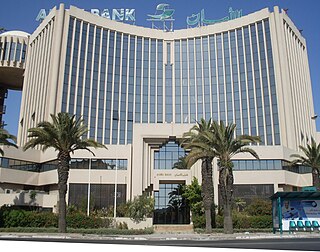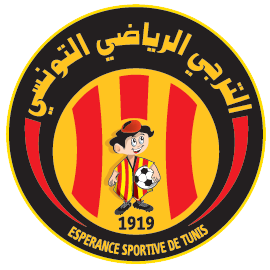
Tunisia, officially the Republic of Tunisia, is the northernmost country in Africa. It is a part of the Maghreb region of North Africa, bordered by Algeria to the west and southwest, Libya to the southeast, and the Mediterranean Sea to the north and east. Tunisia also shares maritime borders with Italy through the islands of Sicily and Sardinia to the north and Malta to the east. It features the archaeological sites of Carthage dating back to the 9th century BC, as well as the Great Mosque of Kairouan. Known for its ancient architecture, souks, and blue coasts, it covers 163,610 km2 (63,170 sq mi), and has a population of 12.1 million. It contains the eastern end of the Atlas Mountains and the northern reaches of the Sahara desert; much of its remaining territory is arable land. Its 1,300 km (810 mi) of coastline includes the African conjunction of the western and eastern parts of the Mediterranean Basin. Tunisia is home to Africa's northernmost point, Cape Angela. Located on the northeastern coast, Tunis is the capital and largest city of the country, which is itself named after Tunis. The official language of Tunisia is Modern Standard Arabic. The vast majority of Tunisia's population is Arab and Muslim. Vernacular Tunisian Arabic is the most spoken, and French also serves as an administrative and educational language in some contexts, but it has no official status.

The economy of Tunisia is in the process of being liberalized after decades of heavy state direction and participation in the country's economy. Prudent economic and fiscal planning has resulted in moderate but sustained growth for over a decade. Tunisia's economic growth historically has depended on oil, phosphates, agri-food products, car parts manufacturing, and tourism. In the World Economic Forum Global Competitiveness Report for 2015–2016, Tunisia ranks in 92nd place.

The Tunisia national football team represents Tunisia in men's international association football. The team is a member of both FIFA and CAF, the Confederation of African Football. It is governed by the Tunisian Football Federation, founded in 1957. Colloquially known as the Eagles of Carthage, the team's colours are red and white, and the bald eagle is its symbol. Most of Tunisia's home matches are played at the Hammadi Agrebi Stadium in Radès since 2001.

Tunisian Arabic, or simply Tunisian, is a variety of Arabic spoken in Tunisia. It is known among its 12 million speakers as Tūnsi, "Tunisian" or Derja to distinguish it from Modern Standard Arabic, the official language of Tunisia. Tunisian Arabic is mostly similar to eastern Algerian Arabic and western Libyan Arabic.

Espérance Sportive de Tunis, known as ES Tunis or simply EST for short, and nicknamed “Mkashkha”, The Elder of Tunisian Clubs, the Blood and Gold Club and The Beast of Africa is a Tunisian professional sports club. It was founded on 15 January 1919 in the Bab Souika neighborhood in Tunis, Tunisia. It has been active in the first Tunisian Professional League 1 since 1936, during which it played 63 seasons, except for the 1970–71 season.

Club Sportif Sfaxien, known as CS Sfaxien or simply CSS for short, is a Tunisian football club based in Sfax. The club was founded in 1928 and its colours are black and white (Bianconero). Their home stadium, Taieb Mhiri Stadium, has a capacity of 12,000 spectators. The club is currently playing in the Tunisian Ligue Professionnelle 1.
The Tunisian Professional League 1, previously called the Tunisian National Championship between 1956 and 1994, is the top division football tournament in Tunisia under the organization of the Tunisian Football Federation. The first edition was held during the French protectorate of Tunisia, the 1907 season, under the auspices of the Federation of Union des Sociétés Françaises de Sports Athlétiques, and it was played in a knockout system, and the first official match was played on 9 June 1907.

The Tunisia men's national basketball team, nicknamed The Eagles of Carthage, represents Tunisia in international basketball. The team is governed by the Tunisia Basketball Federation (FTBB). To date, she has taken part in the regional championship the AfroBasket 23 times. In terms of the number of successful performances, it is inferior to the traditionally strong teams of Senegal, Côte d'Ivoire, and Egypt. In 2011, the Tunisian national team became the champion of Africa for the first time in its history, defeating the Angola team in the AfroBasket 2011 final. The team's previous success was silver at the home Africa Championship 1965. The team also won bronze medals in the 1970, 1974, 2009 and 2015 competitions.

Ahmed Akaïchi is a Tunisian professional footballer who plays as a striker.

Beji Caid Essebsi served as the fifth president of Tunisia from 31 December 2014 until his death on 25 July 2019. Previously, he served as minister of foreign affairs from 1981 to 1986 and prime minister from February to December 2011.

Malek Jaziri is a Tunisian former professional tennis player. Jaziri reached his highest singles ranking on the ATP Tour of World No. 42 in January 2019. He primarily played on the Futures circuit and the Challenger circuit.
Miss Tunisie is a national Beauty pageant in Tunisia. The pageant produced titleholders of Tunisia at Miss Universe, Miss World, Miss International and Miss Earth pageants.

Tunisia competed at the 2016 Summer Olympics in Rio de Janeiro, Brazil, from 5 to 21 August 2016. Since the nation's official debut in 1960, Tunisian athletes have appeared in every edition of the Summer Olympic Games, except the 1980 Summer Olympics in Moscow because of the nation's partial support for the US-led boycott.

On 18 March 2015, two militants attacked the Bardo National Museum in the Tunisian capital city of Tunis, and took hostages. Twenty-one people, mostly European tourists, were killed at the scene, and an additional victim died ten days later. Around fifty others were injured. The two gunmen, Tunisian citizens Yassine Labidi and Saber Khachnaoui, were killed by police. Police treated the event as a terrorist attack.

On 26 June 2015, a mass shooting occurred at the tourist resort at Port El Kantaoui, about 10 kilometres north of the city of Sousse, Tunisia. Thirty-eight people, 30 of whom were British, were killed when a gunman, Seifeddine Rezgui, attacked a hotel. It was the deadliest non-state attack in the history of modern Tunisia, with more fatalities than the 22 killed in the Bardo National Museum attack three months before. The attack received widespread condemnation around the world. The Tunisian government later "acknowledged fault" for slow police response to the attack.

The Tunisian National Dialogue Quartet is a group of four civil society organizations that were central mediators in the effort to consolidate democratic gains and form a lasting constitutional settlement in Tunisia following the unrest and historic regime change of the 2011 Jasmine Revolution.[1]
On 24 November 2015, a bus carrying Tunisian presidential guards exploded, killing 12, on a principal road in Tunis, Tunisia. ISIL claimed responsibility for the attack. The bomber, who also died in the attack, was identified as Houssem Abdelli.

The Battle of Ben Guerdane occurred on March 7, 2016, in the city of Ben Gardane in Tunisia on the border with Libya. Islamic State forces attempted to seize the city, but were repulsed by the Tunisian military. The clashes continued also on 8 and 9 of March in the area.

The Islamic State Insurgency in Tunisia referred to the low–level militant and terror activity of the Islamic State branch in Tunisia from 2015 to 2022. The activity of the Islamic State (IS) in Tunisia began in June 2015, with the Sousse attacks, though an earlier terror incident in Bardo Museum in March 2015 was claimed by ISIL, while the Tunisian government blamed Okba Ibn Nafaa Brigade for the attack. Following massive border clashes near Ben Guerdane in March 2016, the activity of the IS group was described as an armed insurgency, switching from previous tactics of sporadic suicide attacks to attempts to gain territorial control. The armed insurgency was suppressed in 2022.
Ali bin al-Tahar bin al-Falih al-'Awni al-Harzi, known as Abu Zubayr al-Tunisi, was a Tunisian Islamic militant and a senior leader in the Islamic State. He was also a suspect in the 2012 Benghazi attack.













